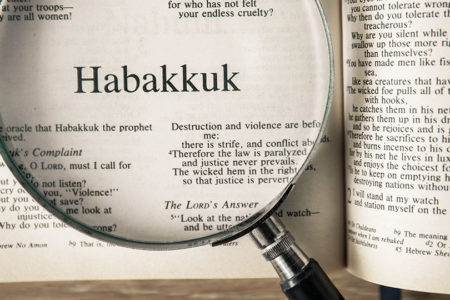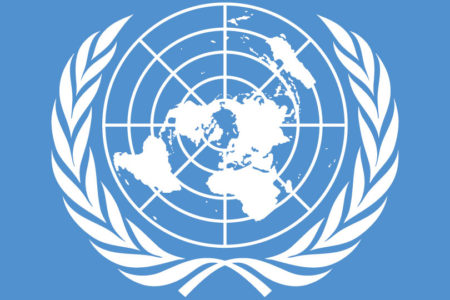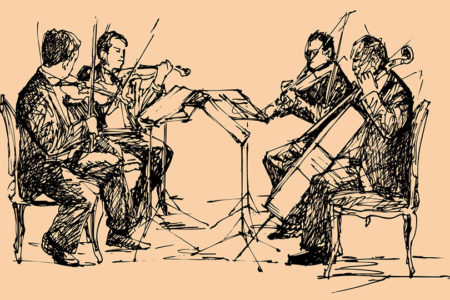Tikkun Olam
It is our duty to praise the Lord of all things, to ascribe greatness to Him who formed the world in the beginning, since He hath not made us like the nations of other lands, and hath not placed us like other families of the earth, since He hath not assigned unto us a portion as unto them, nor a lot as unto all their multitude.
For we bend the knee and offer worship and thanks before the supreme King of kings, the Holy One, blessed be He.
Who stretched forth the heavens and laid the foundations of the earth, the seat of whose glory is in the heavens above, and the abode of whose might is in the loftiest heights. He is our God; there is none else: in truth He is our King; there is none besides Him; as it is written in His Law, And thou shalt know this day, and lay it to thine heart, that the Lord He is God in heaven above and upon the earth beneath; there is none else.1
“Is it almost over?” Who hasn’t sat in a meeting without thinking such a thing? For those who regularly attend “religious” worship services, the question probably has not only been thought, but spoken as well. Although it was not by design, there is within Jewish liturgy a prayer that tells the worshiper when “over” is approaching. The prayer, quoted in part above, is called Aleinu leshabbeah—“It is our duty to praise.” Most Jewish people know it simply as Aleinu. Its familiar melody and words are always chanted near the end of the prayers that are recited three times a day. It is also placed near the end of the New Year (Rosh Hashanah) service.
Composed in the third century A.D., Aleinu was used in the Middle Ages whenever Jews were martyred. The theme of the prayer “is the kingdom of God.”2 Contained within the first paragraph of the worship poem are offerings of praise to God for His creative power and His choice of the Jewish people as His own. With the second paragraph, worshipers bend their knees before Him. The third paragraph praises His glory and the fact that “there is none besides Him.” And the fourth paragraph speaks of Jewish hope that rests in Him to remove various abominations and idols from the world.
Contained within the fourth paragraph is a phrase that reads, when the world will be perfected under the kingdom of the Almighty. While meditating on the prayer, sixteenth-century Kabbalist (mystic) Isaac Luria was moved to deep study. He wrestled with the prayer’s three basic concepts: God’s sovereign selection of the Jewish people, God’s creative power, and the perfection attained under God’s kingdom.
Trapping the ‘Divine Light’
Although he is among the lesser-known rabbis, Luria’s conclusions have immensely influenced juristic thought to this day. Luria came up with a story to explain the condition of the world and to provide hope in dealing with it. In Luria’s story God had several vessels that contained His essence or light. A heavenly calamity occurred when an explosion caused “divine light” particles to come into contact with evil matter.
Writer Joseph Naft explained that, according to Luria, “Our world consists of countless shards of the original vessels entrapping sparks of the Divine light. Humanity’s great task involves helping God by freeing and reuniting the scattered light.”3
The prevailing thought among extremely observant Jews at that time was, “By obeying the commandments and living pious lives, Jews could help free the divine sparks and repair the broken universe.”4 Such thinking resulted in the concept and resultant phrase tikkun olam, or “repairing the world.” The term, wrote Francine Klagsbrun in Moment magazine, “has become synonymous in Jewish life with acts of social justice, which, for many Jews have come to stand for all of Judaism.”5
This rabbinic ordinance was made for the good of society. Observant Jews today use the phrase to encourage people to perform mitzvot (commandments) to “help” God make things right. The Talmud states, “It is not upon you to finish the work, but you are not free to ignore it (Mishna, Ethics, 2:21).”6
Bettering the world is not to be a one-time effort. It is a process: “In order to be a partner with G-d, there has to be a connection. Just as one prepares for the day ahead, and just as you must spend ‘quality’ time with your spouse in order to keep the vitality in your marriage, one also needs to look at one’s relationship with G-d.”7
For some observant Jews, one way to “fix the world” is through repentance. Rabbi Abraham Kook, the first Ashkenazi chief rabbi of Israel, taught that repentance would help to bring about the healing of creation. Other observant Jewish leaders emphasize that repairing the world takes place when one strives to become observant and live a Jewish lifestyle.
Although the more observant Jews birthed the concept of tikkun olam, it was the Reform Jewish movement that embraced it and expanded it. “It was the giants of the early Reform movement who took this idea of ‘repairing the world’ and told us how to do it,” says Rabbi Margaret Holub.8 They did so by tweaking the idea of “repairing” into simply making the world a better place to live in. Many organizations are dedicated to such humanitarian causes as feeding the hungry, improving race relations, instituting social justice (organizations fighting social injustice), women’s rights, etc.
There is even a tikkun olam award. A two-time winner of the award is Peter Yarrow of the once popular singing group Peter, Paul, and Mary.
These overtures can indeed be helpful, even noble. But in reality they have little, if any, relationship with Judaism. Yet these organizations refer to the “Jewish teaching, tikkun olam.”
Cuomo-Lieberman Philosophies
The idea of tikkun olam has even entered the political arena. In the United States two liberal Democrats—one Jewish, one Gentile—invoke a tikkun olam philosophy in their lifestyles. The first is former New York Governor Mario Cuomo. In an interview with journalist Jack Newfield, Cuomo, calling himself a Christian, reportedly said the following:
Tikkun olam, translated roughly, means to repair or cure the universe. What it means to me as a Christian—because it was a truth adopted by Christianity as a cardinal principle—is that God made the world but did not finish it, and our mission as individuals is to use all of our strength to finish the world, to complete it, making it as good a place as we can. That is the mission that gives our life significance. We are perceived, as Christians, as an army trying to win the battle against imperfection.9
Although Cuomo may have a handle on the meaning of tikkun olam, he sorely missed the mark when it comes to understanding biblical Christianity. The Bible teaches that God created a perfect world and man ruined it with sin. Furthermore, man has absolutely no ability whatsoever to “repair” it. God Himself will do so when He creates the new heavens and new earth.
Sen. Joe Lieberman of Connecticut, a failed vice presidential candidate and current presidential hopeful, is an observant Jew who says he has been greatly influenced by the idea of tikkun olam:
“The summary of our aspirations was in the Hebrew phrase tikkun olam, which is translated ‘to improve the world’ or more boldly to complete the creation which God began. . . . my faith was just one of many great gifts my father and mother, Henry and Marcia Lieberman, gave me,” wrote Joe Lieberman in his recent political autobiography, In Praise of Public Life (Simon and Shuster [sic], New York, 2000).10
Sincere but Flawed
Although belief in tikkun olam may inspire people to do good works, help their fellowman, and work diligently to make the world a better place, the concept, nevertheless, is not found anywhere in the Jewish Scriptures. The idea of helping God fix the world is entirely manmade, appealing to the well-intentioned but misinformed. It also can lead to further error. Rabbi Margaret Holub wrote:
I don’t really think we are God’s partners in repairing the world. I think we are the whole show— with all our confusion, all our limitations, all our misguided passions, all the diversions, all the disinformation. If anything, maybe God provides the cry, the call. But if we don’t respond, no one will, I’m afraid.11
I recently asked a Jewish woman if she had heard of tikkun olam. Her reply was that not only had she heard of it, it was all she heard about at her synagogue until that rabbi left. “He centered all the work around tikkun olam,” she said, “helping God perfect the world.”
The Aleinu prayer is the source behind the idea of tikkun olam. How sad it is that Rabbi Luria interpreted the words the world will be perfected under the kingdom of the Almighty to mean human beings would do the perfecting instead of God Himself. Sadder still is the fact that the Hebrew Scriptures do not teach tikkun olam. In fact, they teach that God is perfect and righteous and man is sinful and unrighteous. It is not God who needs help. It is man.
And two thousand years ago, on an old rugged cross, God gave mankind the greatest help it would ever receive. He provided a final atonement for our sins so that we could be “perfected” by faith:
Surely he hath borne our griefs, and carried our sorrows; yet we did esteem him stricken, smitten of God, and afflicted. But he was wounded for our transgressions, he was bruised for our iniquities; the chastisement for our peace was upon him, and with his stripes we are healed (Isa. 53:4–5).
ENDNOTES
- A. TH. Philips, Daily Prayers (New York: Hebrew Publishing Company , n.d.), 149–150.
- Encyclopaedia Judaica CD-Rom Edition, s. v. “aleinu leshabbe’ah.”
- Joseph Naft, “Tikkun Olam: Perfecting the World,” [www.innerfrontier.org/Practices/TikkunOlam.htm].
- Francine Klagsbrun, “Repairing the World,” [www.momentmag.com/columnists/index1.html].
- Ibid.
- “Jewish Ethics,” “Tikkun Olam,” [www.mishpacha.com/tzedakah.shtml].
- Zalman Myersmith, “Letter from America,” [www.newwestend.org.uk/magP02/America.htm].
- Rabbi Margaret Holub, “Tikkun,” “Rabbi’s Notes–November 2001” [www.mcjc.org/mjoldart/MJAMH033.htm].
- Jack Newfield, “An interview with Mario Cuomo,” interview by Jack Newfield, Tikkun magazine [http://www.findarticles.com/m1548/n3_v13/ 20925642/p1/article.jhtml], May-June 1998.
- “Senator Joe Lieberman: In Praise of ‘Tikkun Olam’,” [www.jewishpost.com/jp0610/jpn0610h.htm].
- Holub.







